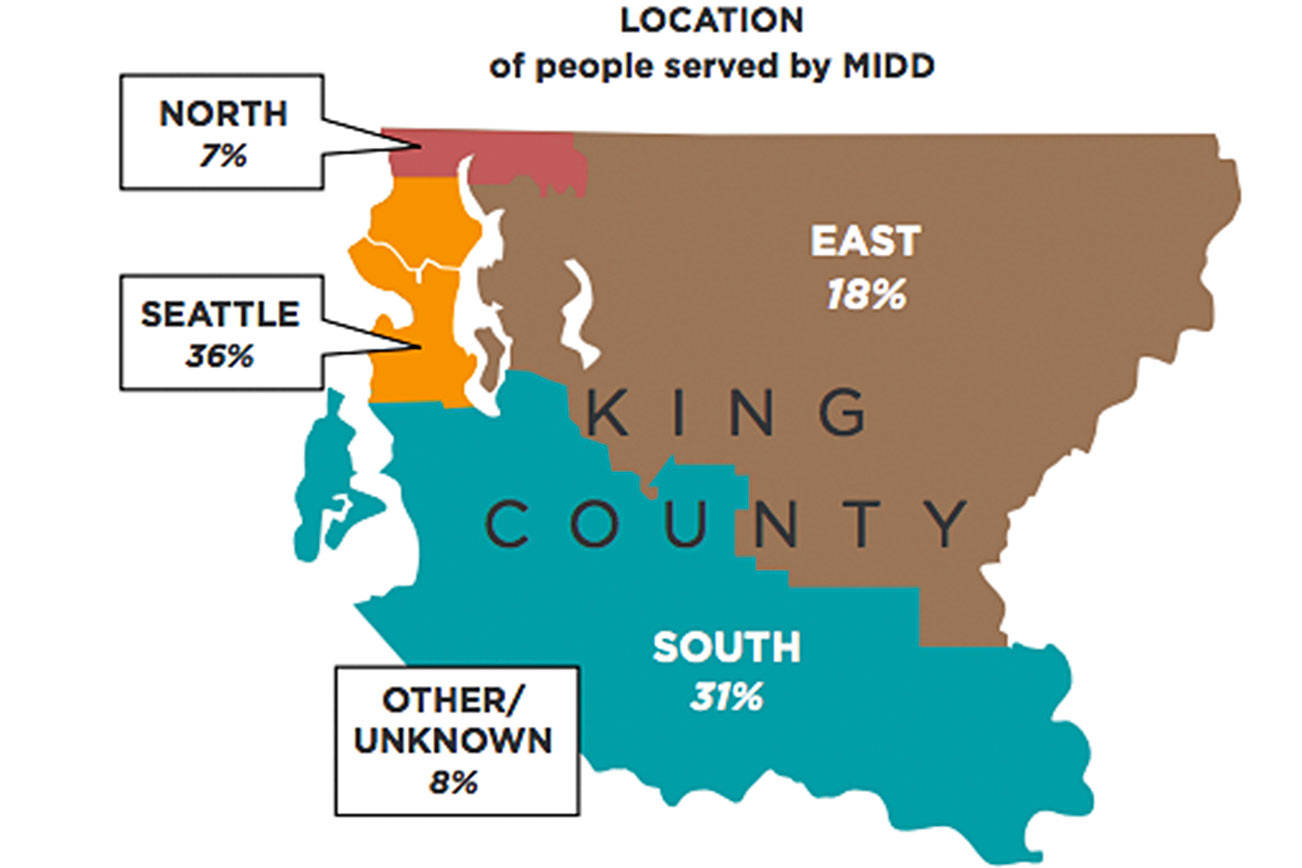Sixteen programs that King County funds as part of its Mental Illness and Drug Dependency program saw their budgets cut by $12 million.
These programs administer everything from youth drug diversion courts to officer de-escalation training. But unlike many other county programs, the Mental Illness and Drug Dependency funding comes entirely from sales tax revenue. When the coronavirus pandemic and consequent social distancing orders arrived this spring, sales tax revenue plummeted.
“This cut came very quickly,” said Leo Flor, King County Director of Community and Human Services said.
If there’s a silver lining, it’s that while sales taxes are quick to drop during a recession, they can also spring back quickly during a recovery, he said. But the Mental Illness and Drug Dependency program is funded through a voter-approved .1 percent sales tax, and by state law, can’t be altered by the county government.
Programs which saw their budgets cut include the adult drug, family treatment and juvenile drug courts. These allow some people arrested on drug charges a way to avoid jail time and receive treatment instead.
Other programs include RADAR, which trains police on de-escalation tactics, LEAD which diverts low level drug offenders and people charged with prostitution crimes towards community-based services.
Flor said the funding cuts are for 2020, and the program is using about half of its roughly $14 million reserve to avoid service reductions to programs that are currently serving clients. Programs that haven’t started yet or are in their early stages were the first ones on the chopping block. Some programs haven’t used all the money allocated for the 2019-2020 biennial budget, and this funding was reclaimed.
The county isn’t mandating cuts to programs, Flor said. They’re only reducing their portion of the funding and letting agencies decide where to make those cuts.
Countywide, there’s a projected $150 million deficit in the 2021-2022 biennium budget.
The county council and executive will hash out that budget this fall.
Even still, cuts to programs was unavoidable. Flor said they focused maintaining funding on programs in the community that keep people with mental illness or drug dependency from interacting with police in the first place.
While programs like drug courts are valuable, it’s better to provide services that keep people from needing them in the first place.
“We really have our eyes on two crises in our community,” Flor said. “One of those is COVID-19. Another is a much older and long-running crisis which is the ongoing effects of structural racism.”
Kelli Nomura, the county’s Director of the Department of Behavioral Health and Recovery Division, said their goal is to work with community organizations that are embedded in communities they serve. Special emphasis is put towards rural communities, communities of color and other undeserved people like immigrants and refugees.
For some, like immigrant communities, that may not have access to Medicaid programs, they county’s funding lets them access comparable mental and drug dependency services.
Flor said none of the cuts this year are meant to end programs permanently.
These programs have proven to be effective. According to the 2018 annual report, people who received services supported by the fund saw a 27 percent decrease in psychiatric hospital admissions, a 37 percent decrease in adult jail bookings and a 44 percent reduction in emergency room admissions.
The report states that 2018 was the first full year a multipronged opioid strategy was implemented. It served 407 people and resulted in a 20 percent reduction in emergency room admissions.
Mental Illness and Drug Dependency programs are provided by the Snoqualmie Valley School District, the Snoqualmie Tribe and Youth Eastside Services, among others.



